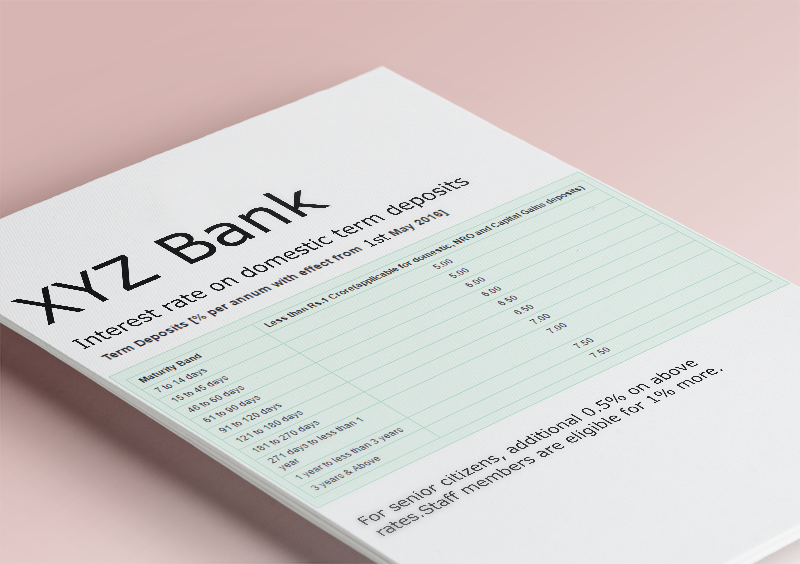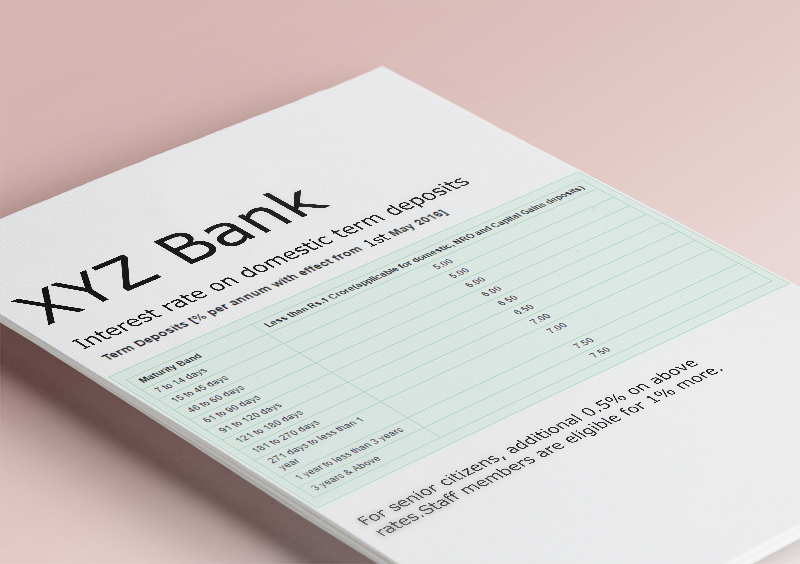A Current account in a bank is a running account (also known as demand deposit) maintained in banks mostly for the purpose of business. The following types of entities are eligible to open current accounts in banks.
- Individual/Proprietorship Account
- Hindu Undivided Family (H.U.F) Account
- Partnership concerns/Limited Liability Partnership (LLP)
- Limited and Private Companies
- Trust Account
- Clubs, Societies (including co-operatives), Associations, Educational institutions
- Government/Semi Government departments
- Hospitals/Nursing homes/pathological laboratories
- Administrators/Executors
You may click any of the above entities to know the account opening formalities.
When a new current account is to be opened, banks insist for a ‘declaration’ from the opener of the account, to the effect that the account holder does not enjoy credit facility with any other bank. If the account opener enjoys credit facilities from other bank/s, they are required to produce ‘No-Objection Certificate’ from their lending bank(s). It is binding on all the Banks to follow the above discipline. RBI would make the concerned bank liable for penalty under Banking Regulation Act 1949,
The customers of current account are permitted to operate the account with frequent deposits of large volume of money either in cash, cheques or electronic transfers like NEFT/RTGS etc. The customer can use unlimited number of withdrawals from the account subject to banking cash transaction tax, if any levied by the government. Deposit and withdrawals can be at any location, multi-location transfer etc. The account provides with Internet-banking and mobile-banking facility to enable businessmen carry out important business transactions promptly and with ease.






